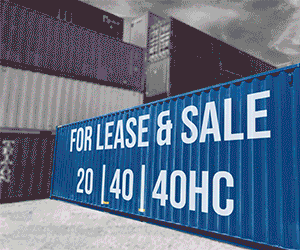Chairman of DP World says supply chain bottlenecks will not clear until 2023

Recently published new research reveals that supply chain issues are exacerbating inflation.
The study by Economist Impact, sponsored by DP World, the leading provider of smart logistics solutions, found that during 2022 trade is expected to expand further, with exports growing 16% in 2021, and imports by 12%. Production levels have been unable to keep pace with demand leading to supply shortages and will limit import growth in 2022.
“The report is evidence that rising freight rates, and low production levels, coupled with a volatile social-economic situation in Europe, will keep inflation high in 2022 as companies navigate a risky trading environment,” commented Sultan Ahmed bin Sulayem, DP World Chairman and CEO.
The survey of 3,000 respondents, captured perspectives of company leaders across the world. In addition to rising inflation, geopolitical tensions between the US and China continue to concern executives with 30% claiming that ongoing trade war between the US and China is the top reason to be pessimistic about global trade.
Takeaways
Highlights of the report are as follows:
- Report indicates supply shortages will increase inflationary pressure in 2022
- Chairman of DP World says supply chain bottlenecks will not clear until 2023
- 29% of companies that export are concerned about the risk of rising inflation due to supply chain disruption
- 30% of companies expect increasing transport costs to limit export-led growth in 2022, contributing to higher inflation
- Just-in-time shipping is dying with over a quarter of companies now holding onto stock for three months
Despite the apprehension, and low production levels limiting imports, international revenue expanded for 68% of companies exporting freight in 2021, compared with 42% in 2020. 35% attributed that growth to an expansion of exports into new markets, as companies took advantage of new trade routes created by the pandemic.
To cope with the pandemic and ease inflationary pressures, companies are also changing their strategic outlook. 48% now said diversifying their supplier base is their primary reconfiguration strategy, with efforts focused on sourcing raw materials (24%) and managing shipping lines and logistics (21%).
The highest cited reason for optimism for global trade was the growth of technology to ease supply chain issues, particularly the adoption of 5G to increase connectivity.
Streamlining operations
Digitalisation can also streamline operations and increase efficiencies in trade. 67% of companies in the industrial sector are already using digital platforms for supply chain management. Businesses now have greater flexibility to move cargo faster, track progress in real time and automate customs clearance processes, helping address non-tariff barriers.
This is the second edition of the ‘Trade in Transition’ Report, produced by the Economist Impact and sponsored by DP World. It is a global survey that retrieves data from over 3,000 executives, examining their experience of the pandemic, confidence on government policies, supply chain pressures on the movement of trade around the world and ESG priorities in trade. The report deep dives into regional (North America, South America, Europe, Middle East, Africa, and Asia-Pacific) and sectoral data (FMCG, health and pharma, industrial) to compare and contrast priorities in international trade.
Want to stay updated on the latest industry news and trends? Subscribe today to receive your monthly news highlights directly in your inbox!










